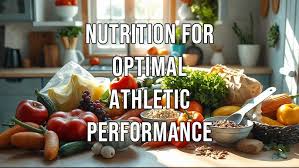Athletes need the right nutrition to fuel their bodies, improve endurance, and enhance recovery. A well-balanced diet helps maximize performance, prevent injuries, and maintain overall health. Here’s the best nutrition plan for athletes to stay at their peak.
1. Importance of Macronutrients
- Carbohydrates: The primary energy source for athletes. Whole grains, fruits, and vegetables provide sustained energy.
- Proteins: Essential for muscle repair and growth. Good sources include lean meats, eggs, fish, dairy, and plant-based proteins like beans and lentils.
- Fats: Healthy fats from nuts, avocados, and olive oil support long-term energy and overall health.
2. Pre-Workout Nutrition
Eating the right foods before training ensures athletes have enough energy to perform at their best.
Results
#1. What is your preferred work location?
#2. What is your current employment status?
#3. Which continent are you currently living in?
#4. What is your gender?
#5. What type of work are you most interested in?
#6. What is your highest completed level of education?
- Ideal Pre-Workout Meal: A combination of complex carbohydrates and lean protein, such as oatmeal with nuts or grilled chicken with brown rice.
- Timing: Eat at least 1-3 hours before exercise to allow for proper digestion.
3. Hydration for Peak Performance
Dehydration reduces endurance and causes fatigue.
- Water: Essential for regulating body temperature and preventing cramps.
- Electrolytes: Sports drinks or natural options like coconut water help replenish lost sodium and potassium after intense workouts.
4. Post-Workout Recovery
🎓 Must Read
After training, the body needs nutrients to recover and rebuild muscles.
- Protein-Rich Foods: Chicken, fish, eggs, or plant-based options like tofu and legumes help muscle recovery.
- Carbohydrates: Replenish glycogen levels with fruits, whole grains, or smoothies.
- Healthy Fats: Nuts and seeds support inflammation control and joint health.
5. Meal Planning for Athletes
A well-structured meal plan helps maintain energy levels and prevents fatigue.
- Breakfast: Scrambled eggs with whole-wheat toast and avocado.
- Lunch: Grilled salmon with quinoa and steamed vegetables.
- Dinner: Lean beef or tofu stir-fry with brown rice.
- Snacks: Greek yogurt, nuts, or a banana with peanut butter.
6. Supplements: Do Athletes Need Them?
While whole foods should be the primary source of nutrients, some athletes may benefit from:
- Protein Powders: For those struggling to meet daily protein needs.
- Creatine: Supports muscle strength and recovery.
- Omega-3s: Helps reduce inflammation and improve joint health.
7. Avoid These Common Nutrition Mistakes
- Skipping Meals: Leads to low energy and muscle breakdown.
- Overloading on Junk Food: Processed foods can slow down recovery and affect performance.
- Not Drinking Enough Water: Even mild dehydration can reduce focus and stamina.
Final Thoughts
An athlete’s diet plays a crucial role in performance, endurance, and recovery. By focusing on balanced meals, proper hydration, and strategic timing, athletes can stay in peak condition and achieve their goals.









